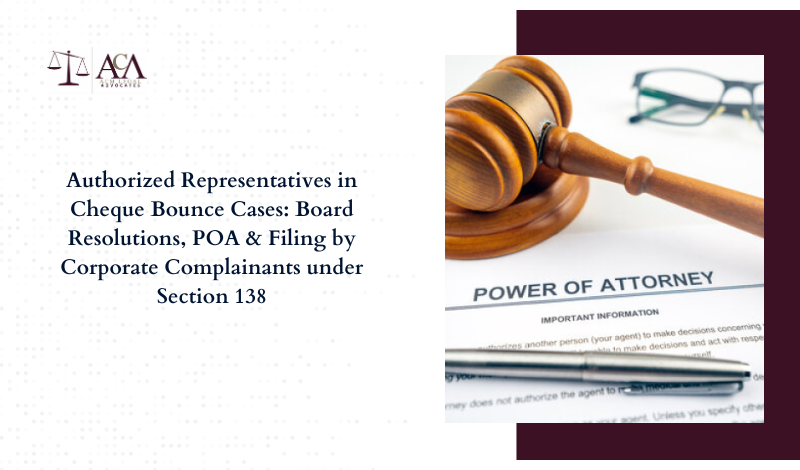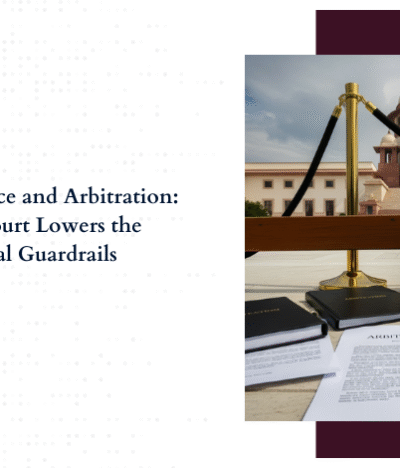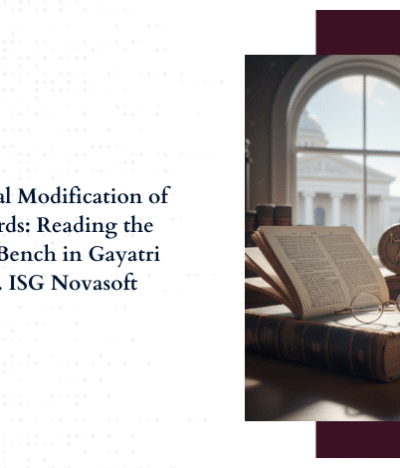In cheque dishonour cases under Section 138 of the Negotiable Instruments Act, 1881 (“NI Act”), one recurring question is who exactly is competent to file the complaint on behalf of a company or other corporate entity. Since a company is a juristic person, it cannot appear in court physically—it must act through an authorized representative. The law in Delhi, as shaped by statutory provisions and judicial precedents, is clear that a complaint by a corporate complainant under Section 138 must be instituted only through someone duly empowered by the company’s internal authorisation process, typically via a board resolution or a power of attorney (POA).
This procedural requirement is not a mere formality. Courts in Delhi have repeatedly underlined that an improperly instituted complaint can result in dismissal at the threshold, even before trial begins. Thus, whether the complaint is filed by a director, a company secretary, a manager, or any other officer, the authority to act must be established through documented authorization.
Corporate Complainant and the Need for Authorization
When a company initiates prosecution for dishonour of a cheque, it does so as a corporate complainant 138. Unlike an individual, a company has no physical existence and must therefore act through natural persons who represent its interests. The NI Act itself permits this, but the representative must be duly authorised, failing which the complaint risks rejection.
In Delhi, courts have consistently emphasized that the complaint must be filed either by:
- A director or principal officer expressly authorised by the company’s board resolution cheque bounce; or
- An individual holding a valid power of attorney executed by the company; or
- A duly appointed authorized representative NI Act, whose capacity is demonstrated in the complaint itself.
The rationale is straightforward: cheque bounce proceedings carry penal consequences, and the process cannot be triggered casually or by someone without lawful standing. In fact, the Supreme Court and the Delhi High Court have both observed that establishing due authorization is foundational to the maintainability of a complaint.
Board Resolutions in Cheque Bounce Complaints
A board resolution to cheque bounce is the most common method through which a company authorises a person to file and pursue a case under Section 138 NI Act. The resolution is passed at a duly convened meeting of the Board of Directors and recorded in the company’s minutes. It must clearly state:
- The decision of the company to initiate proceedings under Section 138;
- The name and designation of the person authorised to represent the company;
- The scope of authority, including signing the complaint, filing affidavits, engaging counsel, and appearing before court.
Delhi courts have insisted that mere status as a director is not enough unless the director is specifically empowered. Likewise, employees or officers such as accounts managers or legal officers must be shown to have authority under a board resolution to cheque bounce.
Where such resolutions are absent, complaints have been struck down for want of proper authorization. However, courts have also clarified that a subsequent ratification by the board may sometimes cure the defect if the original complaint was filed by someone closely connected with the management. Nonetheless, relying on afterthoughts is risky. For smooth maintainability, a fresh resolution passed before filing is always the safest course for a corporate complainant 138.
Power of Attorney and Authorized Representatives
Apart from board resolutions, companies often rely on a power of attorney to empower individuals to act on their behalf in cheque bounce proceedings. This approach is common when routine litigation work is delegated to legal managers, in-house counsels, or external professionals.
A power of attorney, when properly executed and notarised, carries the same legal force as a board resolution for the purposes of Section 138. The courts in Delhi have repeatedly held that such authorization is valid, provided the instrument specifically grants powers to:
- File and pursue complaints under the NI Act;
- Sign pleadings, affidavits, and vakalatnamas;
- Engage advocates and depose as witness, if necessary.
The authorized representative acting under a power of attorney stands on a firm legal footing, as long as the complaint discloses the basis of authorization and attaches a copy of the document. In practice, Delhi magistrates often scrutinise whether the POA covers the specific act of instituting criminal complaints. A vague or general POA may not pass muster.
For a corporate complainant 138, this route provides flexibility—allowing companies to centralise litigation work in the hands of trained legal officers without convening board meetings for each case. Still, to avoid procedural challenges, companies are well advised to draft POAs carefully, expressly empowering the holder to initiate and pursue cheque dishonour prosecutions.
Judicial Scrutiny in Delhi: How Courts Assess Authorization
Delhi courts have adopted a strict but pragmatic stance when it comes to verifying whether a corporate complainant 138 has properly authorised its representative. At the pre-summoning stage, magistrates examine the complaint, supporting affidavit, and annexed documents to see if the complainant has demonstrated competence.
Key judicial trends include:
- Requirement of Disclosure: The complaint must clearly mention that the person filing is an authorized representative under NI Act, specifying whether authority flows from a board resolution to cheque bounce or a power of attorney. Silence or ambiguity on this point often leads to objections from the accused.
- Production of Documents: Courts generally insist on production of the original resolution or a certified copy, and the power of attorney where applicable. Merely asserting authority without documentary backing is insufficient.
- Subsequent Ratification: In some Delhi cases, where complaints were filed by directors or officers without formal prior authorization, courts allowed ratification by the board at a later stage. However, this is treated as an exception, not the rule, and is permissible only when the complainant’s connection to the company is undisputed.
- Cross-Examination on Authority: Accused persons often challenge the standing of the complainant at trial. Courts allow cross-examination on whether the person was truly empowered, making the initial documentation critical for the complainant’s case.
FAQs
1. Can any director file a cheque bounce case on behalf of a company?
Not automatically. Even a director must be specifically authorised through a board resolution cheque bounce or a power of attorney. Courts in Delhi have held that mere designation as a director is insufficient without express authority.
2. What happens if a company files a Section 138 complaint without authorization?
If a corporate complainant 138 files a complaint without attaching the resolution or POA, the accused can challenge its maintainability. In many cases, such complaints have been dismissed at the pre-summoning stage.
3. Is a power of attorney as valid as a board resolution?
Yes. A properly executed and notarised POA is recognised by Delhi courts as valid authorization for an authorized representative NI Act, provided it clearly mentions cheque bounce proceedings under Section 138.
4. Can authorization defects be cured later by ratification?
Sometimes. Courts have allowed subsequent ratification if the person filing was a closely connected officer, like a director. However, this is an exception. The safer approach for a corporate complainant 138 is to obtain proper authorization before filing.
5. Should the authorization documents be filed with the complaint itself?
Yes. The magistrates in Delhi generally expect certified copies of the board resolution cheque bounce or POA to be filed with the complaint. This avoids unnecessary objections and delays at the summoning stage.
Conclusion
The law in Delhi leaves little room for doubt: a corporate complainant 138 must demonstrate that its complaint is instituted through a duly empowered person. The requirement of a board resolution in cheque bounce, or a carefully drafted power of attorney is not technical pedantry, but a safeguard ensuring that criminal proceedings under the NI Act are initiated with due corporate sanction.
Treat authorization as seriously as the substantive claim. A well-prepared resolution or power of attorney ensures that the complaint stands firm against procedural attacks, allowing the court to focus on the real issue—the dishonour of the cheque. By embedding authorization in corporate governance practices, businesses in Delhi can safeguard their cheque bounce actions from premature dismissal and secure remedies that the law intends.






